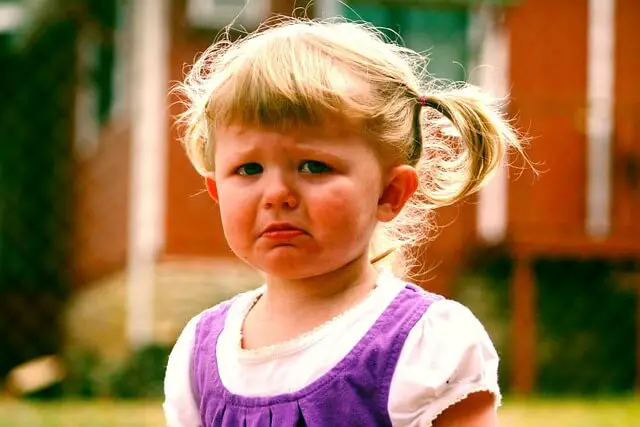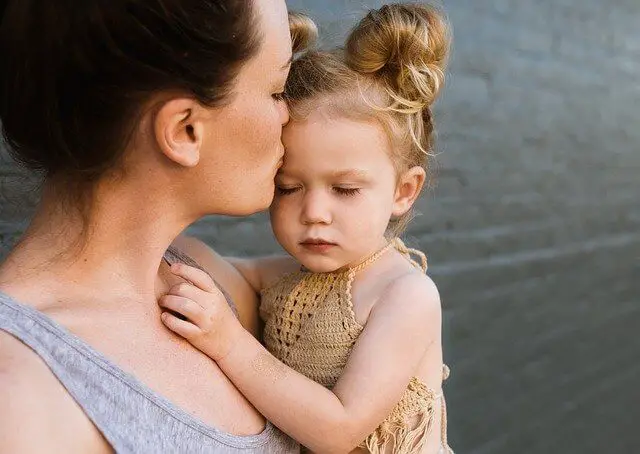Positive parenting is a style of child-rearing that focuses on instilling the values of empathy, mutual respect, and kindness in young children. This method emphasizes building a secure attachment, self-esteem and fostering independence.
The central principle behind positive parenting is that parents should do their best to provide an environment where children feel loved and have opportunities for success. These opportunities will include a natural consequence, but punishment is not used as a discipline technique.
This article will help you find positive ways to encourage better behavior from your toddler, as well as practical strategies to help when difficult situations arise.
Let’s get started.
The Benefits of Positive Parenting
Positive parenting approaches will yield positive results and benefits for both parent and child. It focuses on encouraging better relationships while remaining calm, even-tempered, and patient when unwanted behaviors pop up.
This does not mean positive parents are naïve to their children’s misbehavior or wrongdoings.
Positive parents have high expectations of behavior from their children just like any other parent would. However, positive parents avoid power struggles and use loving guidance rather than negative feedback to teach their children life skills.
Positive parenting really focuses on the parent-child relationship and the emotional connection between caregiver and infant.
Foster Better Self-esteem

Research shows that parenting styles in early childhood have an impact on self-esteem in later life. This is especially true for women where parenting styles have been shown to have a direct impact on not only self-esteem but also adult mental health.
Each time your child accomplishes something, no matter how small, start with praise. This helps with self-esteem at any age.
Positive Parenting is for Everyone!
Positive parenting has shown wonderful results in kids of all ages, including children with ADHD, ODD, and other diagnoses often referred to as “behavior problems”.
Many times, we can turn a bad day around just by giving a high five and calling our children out for their positive behavior.
Positive Parenting Adapts to Your Situation

When bad behavior rears its head some kids are easier to get back on track than others.
Sometimes distractions and redirection work, other times it will feel like pulling teeth just to get everyone dressed and out the door.
Meeting your child where they’re at with positive parenting will encourage them to be their true selves in a safe way. Let them know that your home is a safe space for them to express themselves and that you are here to listen when they need you.
Instead of trying to mold your child into what your idea of “good” is, meet them where they’re at and show them how amazing you think they are – just because they are themselves.
Catch Positive Behavior.
When you see positive behaviors, give positive reinforcement. For example, if a father sees his daughter playing nicely with her toys he could walk over and say
“I like what you are doing right now with your toys, I am proud of the way you are playing today.”
This reinforces positive conduct to the child because she feels proud of herself in what she is doing and is encouraged to continue acting this positive way. The child will want to continue showing positive behavior because positive parents make it fun, easy, and enjoyable instead of being hard on their children.
When you notice your child is struggling or maybe working towards making a bad decision, encourage them ahead of time “Thanks so much for putting your shoes on!” is a statement that will encourage your child to put their shoes on, even if they may have been veering off track or even getting ready to say they didn’t want to wear shoes.
If you catch your child being good, you can help create a snowball effect. One positive thing encourages another.
Give Praise, Not Bribes.
Sometimes people get confused when we talk about praising or rewarding children for positive behavior.
Rewards are not bribes, nor should they be food-related. Eventually, our children will grow up and become adults.
The way you prepare them for this is different in every household, but offering positive praise rather than constant physical rewards can help their positive behaviors become more intrinsic.
Negative Parenting Leads to Negative Results

Positive parents also believe that negative parenting does not yield positive results nor do kids learn when they are being yelled at or punished.
We all want to raise children who are confident in themselves and their abilities. It’s important for parents to provide their children with unconditional support. When children are raised with positive parenting techniques, they will be more likely to grow up happy and healthy.

You may be interested in my other articles for One-Year-Olds:
19 Time Capsule Ideas for your Baby’s First Birthday
7 Positive Parenting Tips for Toddlers
As a parent myself, I know that raising toddlers can be tough. Whether you’re navigating temper tantrums or trying to negotiate screen time these tiny human beings push you to the limit of your patience and it can be hard to keep control of your own emotions.
It’s hard to make good decisions and maintain a positive approach in the heat of the moment, so take some time out to reflect and plan what you will do next time.
These seven positive parenting strategies will help you stay on track and raise the next generation of great leaders!
1) Set Boundaries.

Having boundaries in your relationship with your toddler is a necessary part of positive parenting.
Present rules and boundaries in a positive way; avoid being harsh. If you’re feeling negative emotions such as being overwhelmed, upset, or angry then that may be a sign that you need to set new boundaries.
Provide boundaries and expectations in a clear age-appropriate way that your toddler will be able to fully understand and be consistent.
Life gets frustrating – for kids and parents – when clear boundaries and expectations are not conveyed in a way both can understand.
2) Avoid Shaming.
Another thing to remember when focusing on positive parenting is to avoid shaming. There are ways to let your child know that their behavior is inappropriate without shaming them.
Instead of saying “Don’t act like a baby!” you explain to them how and why their behavior is immature or inappropriate.
Shaming your toddler is that it doesn’t help them understand why their behavior is unacceptable. Shaming can cause future insecurities or can even cause their negative behavior to increase.
It’s important to be clear and educate your child – no matter their age – instead of shaming them for something they may not understand. You may have to repeatedly tell them why something isn’t appropriate, so try to be patient, but shaming is never the answer.
Shaming will also undermine the close bond you are trying to foster with your child.
3) Get to the Root of the Behavior.

There’s always a reason that a child misbehaves, and focusing on the reason behind the behavior can help stop it. It’s critical to ask questions and talk to them one on one while listening to what they’re saying and trying to understand their behavior.
Depending on your child’s age they may not be able to verbally communicate much with you at all, so you may need to get creative to understand their needs.
Instead of focusing on the behavior in the moment, try to connect with them; find the root of the problem.
There’s usually a lot more to the negative behavior than the behavior itself. You may need to dig deep to find the root cause. That doesn’t mean being pushy. Your toddler will communicate when they are ready.
4) Reward Instead of Punishing.
The most important part of using a reward system is staying away from toys or food because these can seem more like bribes.
Use extra quality time or positive reinforcement as a reward for good behavior. If your child has positive behavior for a few days then you can suggest a nature hunt in the local park, or crafting something with them, for example.
Punishing a child is not as effective as using rewards or praise.
Focusing on rewards instead of punishments will help your child’s behavior in the long run. It’s critical to reward positive behavior rather than punishing negative behavior. It’s crucial that they know what they’re doing is good and you are proud of them.
5) Lead by Example

Children copy their parents so it’s vital that you are seen as a positive role model.
Teaching them manners and respectful behavior is essential, but you must also show them how to use their manners and behave respectfully.
Children learn by mimicking others. If you’re respectful and polite towards them, they will be respectful and polite towards others. It’s not enough to teach, they need to be shown what respectful behavior is on a daily basis.
Another way to lead by example is to apologize to your children when you’re wrong. This is a big one most of us miss out on, but it’s an awesome learning opportunity for our kids to see us apologize when we make mistakes.
6) Follow Through.
This is a cornerstone of positive parenting.
Threatening consequences over and over again without following through undermines your toddler’s respect for your word.
Showing your child there are consequences for negative behavior is so important. You shouldn’t set up a consequence if you’re not going to follow through on it.
This isn’t only said for consequences, it also goes for actions and rewards. Don’t make promises that you cannot keep because it can cause your child to not trust you.
7) Quit Yelling!

Yelling does not set a good example for your toddler and can escalate the situation. Take a breath, remind yourself to stay calm, and then intervene.
Unless your toddler is in a potentially dangerous situation (e.g. running into traffic or touching a hot stove), try to communicate with them in ways other than raising your voice.
Yelling at your child when you are upset will teach them to yell when they are upset. Over time they will be more likely to yell back to you and start yelling at others.
Think back to the last time someone yelled at you. How did you feel?
Even if you are a big yeller, you can learn how to stop yelling when you get frustrated with your kids.
Worked Example
Your toddler was playing nicely with their brother, but suddenly you hear squabbling and your toddler hits their brother with the dinosaur they are holding.
The Boundary – You do not hit your brother with the dinosaur
Consequence – I will remove the dinosaur if this behavior continues.
Option One – Your toddler stops hitting
Reward and Leading – Praise your toddler. As a reward for playing nicely perhaps the three of you could play a game together. Demonstrate to your toddler how much more fun they can have when they play nicely together.
Option Two – Your toddler continues to hit their brother
Consequence – I am removing this toy so you can no longer hit your brother.
Communication – Calmly take your toddler to one side so you can focus on them. Explain that you have removed the dinosaur so they can no longer hurt their brother. Try to get to the root of the problem, in this case, they have likely lashed out due to frustration. Acknowledge the emotion they are feeling
“you feel frustrated because you wanted the green dinosaur your brother was holding and he wouldn’t give it to you”
Encourage empathy and work through a solution together.
“How do you think your brother is feeling now you have hit him? Can you find another toy to play with until it is your turn to have the green dinosaur?”
It’s important to remember the emotional intelligence of your child when expecting them to deal with complex social interactions.
Read all about Toddler Milestones here.
Helpful Resources
- Positive Discipline by Jane Nelsen
- Amy McCready the founder of Positive Parenting Solutions. If you are looking for additional support or an online course to take, Amy offers the Positive Parenting Program



2 comments
Comments are closed.